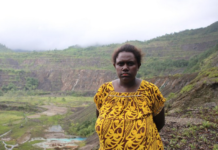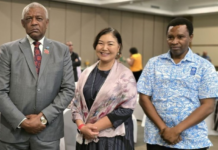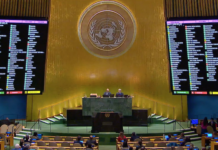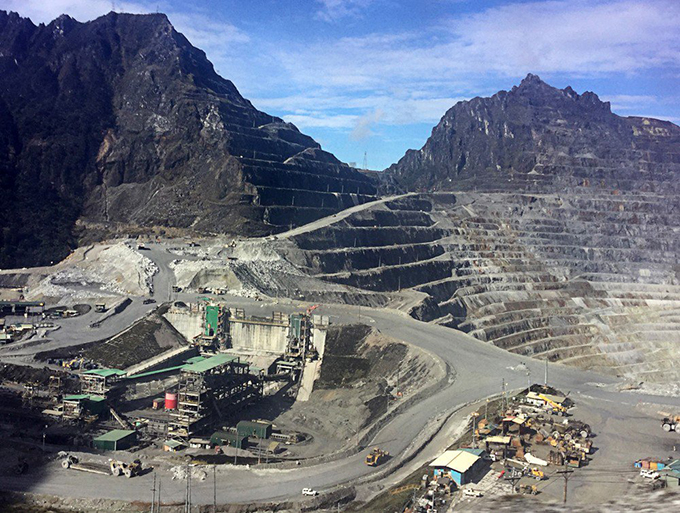
By Viriya P. Singgih and Grace D. Amianti in Jakarta
The Indonesian government has approved the conversion of the contracts of gold and copper miner PT Freeport Indonesia and copper producer PT Amman Mineral Nusa Tenggara, allowing them to continue exports of their partly processed minerals.
As required by a revised government regulation that has partly lifted the ban on the export of raw and partly processed minerals, the two companies have converted their contracts of work (CoW) into special mining licences (IUPK).
The Energy and Mineral Resources Ministry stated that Amman Mineral and Freeport Indonesia had submitted proposals to convert their CoW into IUPK on January 25 and 26, respectively.
READ MORE: Indonesia stands firm as Freeport mine threatens to cut production
Amman Mineral has recently been taken over by local energy firm PT Medco Energi Internasional, owned by politically wired tycoon Arifin Panigoro, from the United States-based miner Newmont Mining Corp., while Freeport Indonesia is a subsidiary of another American giant mining company Freeport-McMoRan Inc.
“Today, the Energy and Mineral Resources Ministry has approved the conversion of Freeport and Amman’s CoW into IUPK,” the ministry’s mineral and coal director general, Bambang Gatot Ariyono, said on Friday.
“Furthermore, we expect those companies to immediately submit proposals for export permit extensions so that we can process them right away.”
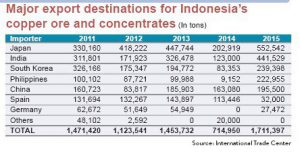
Bambang also said the proposals needed to be submitted along with written integrity pacts consisting of commitments and detailed plans to build a smelter, the progress of which will be monitored every six months.
Last month, the government relaxed the ban on mineral exports in returns for miners’ commitment to convert their CoW into IUPK, divest 51 percent of their shares and build a domestic smelter.
“The two companies must also comply with the requirement to sell their shares,” said Bambang, declining to elaborate on the subject of divestment.
The requirements are stipulated in two ministerial decrees as derivatives of the fourth revision of Government Regulation No. 23/2010 on the management of mineral and coal businesses, which allows miners to continue exporting copper concentrates, certain amounts of low-grade nickel and washed bauxite.
Politicians and analysts have argued that the issuance of the regulation and the decrees contravene the 2009 Mining Law, which originally imposed a total ban on mineral ore exports in 2014 and mandated all miners to build smelters domestically to strengthen the processing industry.
However, up to now, Freeport Indonesia and Amman Mineral have shown no significant progress in their smelter developments.
Now that the companies have obtained their IUPK both of their CoW have automatically been annulled and they are obliged to comply with fiscal policies stipulated in the prevailing law in return for their export permit extensions.
The Finance Ministry’s fiscal policy head, Suahasil Nazara, said the government had finalized the revision of a 2014 finance ministerial decree on raw mineral export duties, with the new rates to be based on the smelter-construction progress.
Export duty revision
Under the revision, if smelter progress is between 0 and 30 percent, the export duty will be 7.5 percent, while if the progress is between 30 and 50 percent the duty will be 5 percent and for 50 to 75 percent progress, the duty will be 2.5 percent.The export duty will be 0 percent only when progress passes 75 percent.
The export duties for both lowgrade nickel and washed bauxite will be 10 percent. However, Suahasil did not detail whether the rate was linked to the progress in smelter construction.
“A miner needs to submit a proposal to get the recommendation from the Energy and Mineral Resources Ministry for its export permit. Within such a recommendation, the ministry will state the progress of the smelter development, which will be our basis for setting the export duty for the miner,” Suahasil said, while adding that the duty would last in accordance to the export permit period.
Data from the Finance Ministry show that Freeport Indonesia and Amman Mineral paid Rp 1.23 trillion (US$92.1 million) and Rp 1.25 trillion, respectively, in export duty alone to the government throughout 2016.
Freeport Indonesia said recently it had begun preparing to reduce production, which could be followed by job cuts, in a move that indirectly pushed the government to grant the company the export permit.






























